10. Preah Vihear
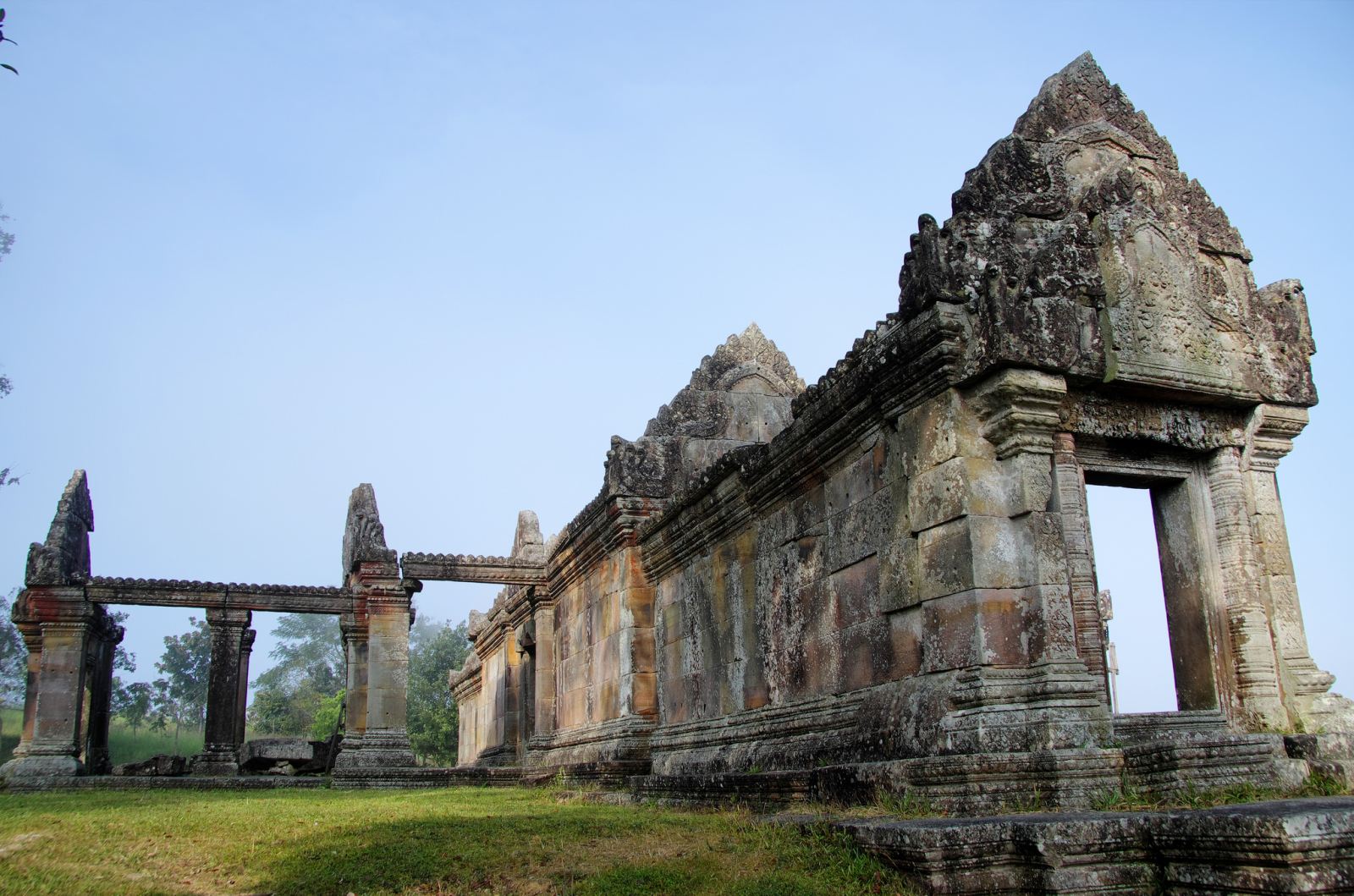
Preah Vihear is a Khmer temple situated atop a 525 meter (1,722 ft) cliff in the Dângrêk Mountains, on the border between Cambodia and Thailand. It has the most spectacular setting of all the Khmer temples. Most of the temple was constructed in the 11th and 12th century during the reigns of the Khmer kings Suryavarman I and Suryavarman II. It was dedicated to the Hindu god Shiva. Preah Vihear is the subject of a long-running territorial dispute between Thailand and Cambodia, and several soldiers were killed in clashes in 2009.
9. Sihanoukville
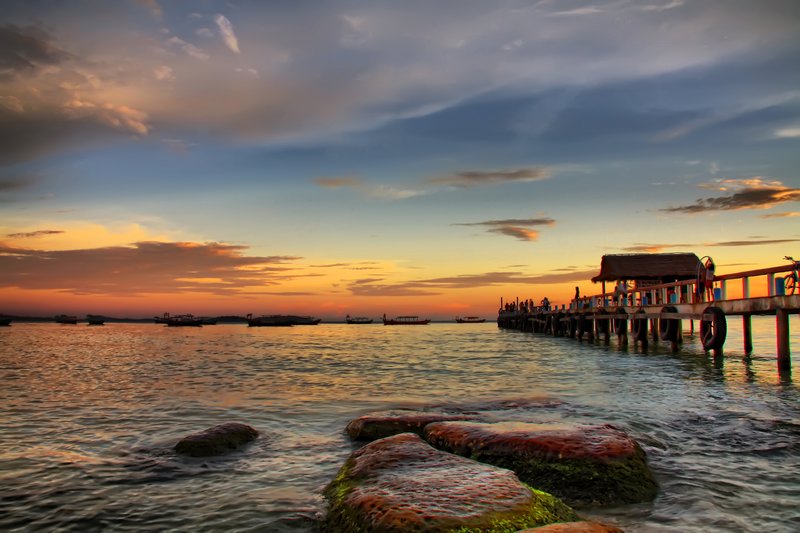
Sihanoukville, also known as Kampong Som, is a port city and beach resort on the Gulf of Thailand. The big attraction here are the white-sand beaches and several undeveloped tropical islands. Sihanoukville is a good place to relax and unwind, though be prepared to battle the crows during the high season or a holiday weekend.
8. Tonle Sap
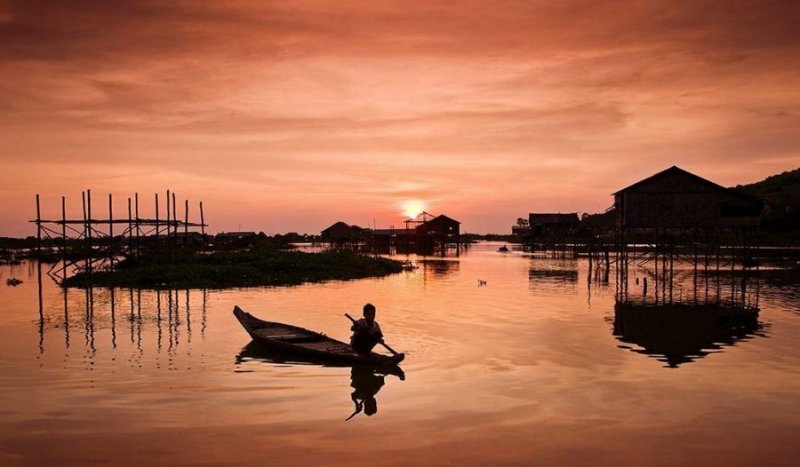
Tonlé Sap is the largest freshwater lake in South East Asia and is of major importance to Cambodia. The lake expands and shrinks dramatically with the seasons. From November to May, Cambodia’s dry season, the Tonlé Sap drains into the Mekong River at Phnom Penh. However, when the year’s heavy rains begin in June, the flow of the Tonlé Sap changes directions and an enormous lake forms. Tonlé Sap is home to many ethnic Vietnamese and numerous Cham communities, living in floating villages around the lake.
7. Silver Pagoda
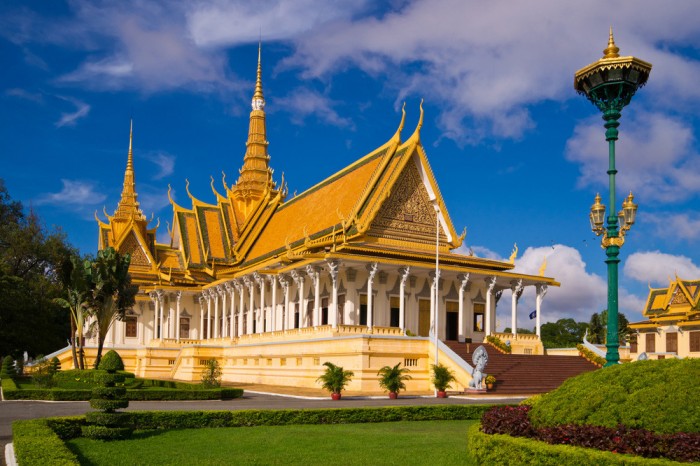
Located within the Royal Palace compound in Phnom Penh, the Silver Pagoda houses many national treasures such as gold and jeweled Buddha statues. Most notable is a small 17th century baccarat crystal Buddha (the Emerald Buddha of Cambodia) and a life-sized gold Maitreya Buddha decorated with 9584 diamonds. The internal wall of the Silver Pagoda courtyard is decorated with a richly colored and detailed mural of the Ramayana myth, painted in 1903–04 by 40 Khmer artists.
6. Bokor Hill Station
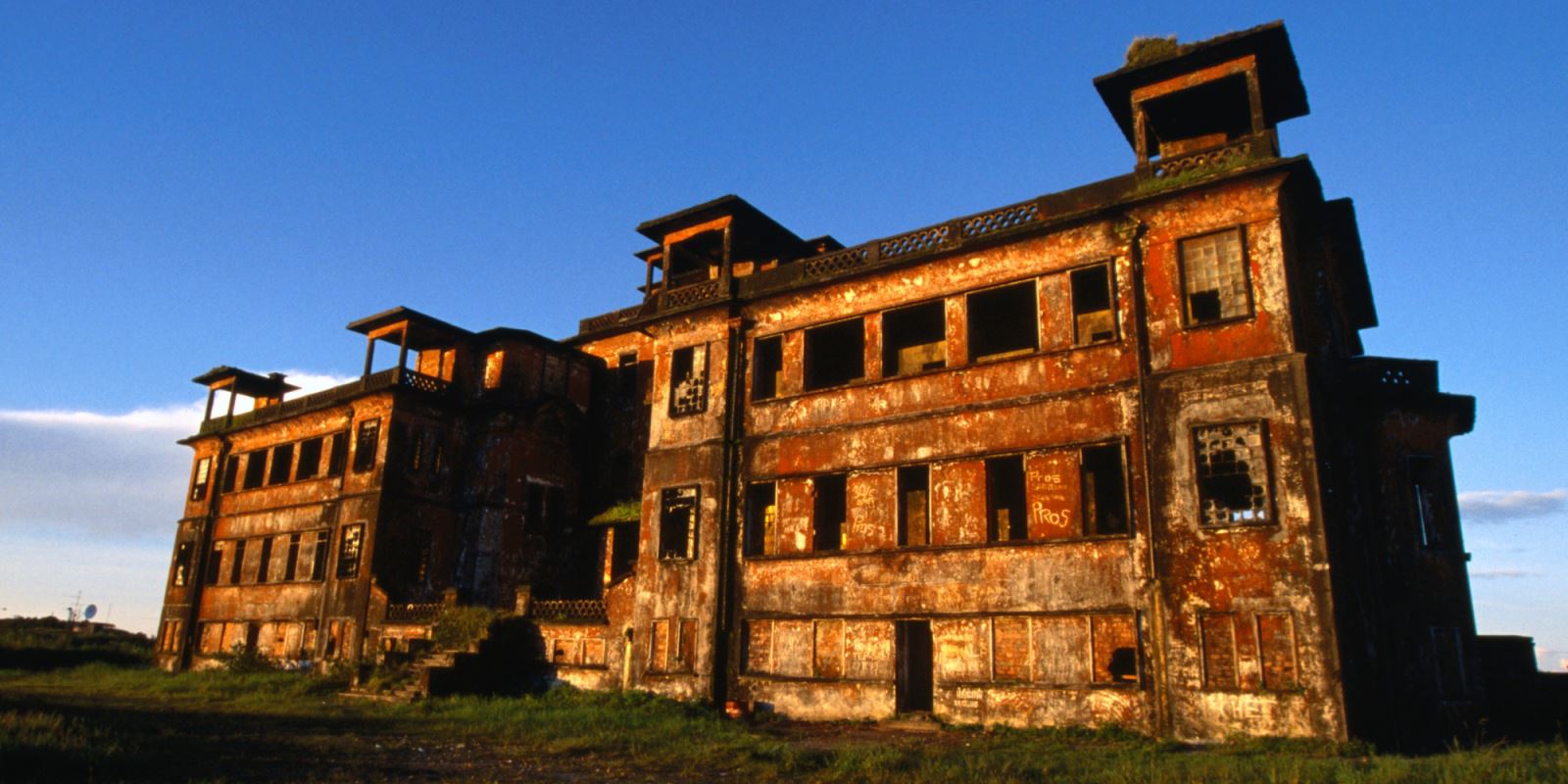
Bokor Hill Station near Kampot was built by the French in the 1920s to be used as a retreat from the heat of Phnom Penh. It has since been abandoned twice, first in the 1940s when the Japanese invaded Cambodia and again in the 1970s, when the Khmer Rouge engulfed the country. Today, Bokor Hill Station and its abandoned buildings have an eerie, ghost-town feel. As of October 2008, the road to Bokor is officially closed due to ongoing reconstruction. Independent access seems to be impossible. though there are hiking tours arranged by local travel agents.
5. Kratie
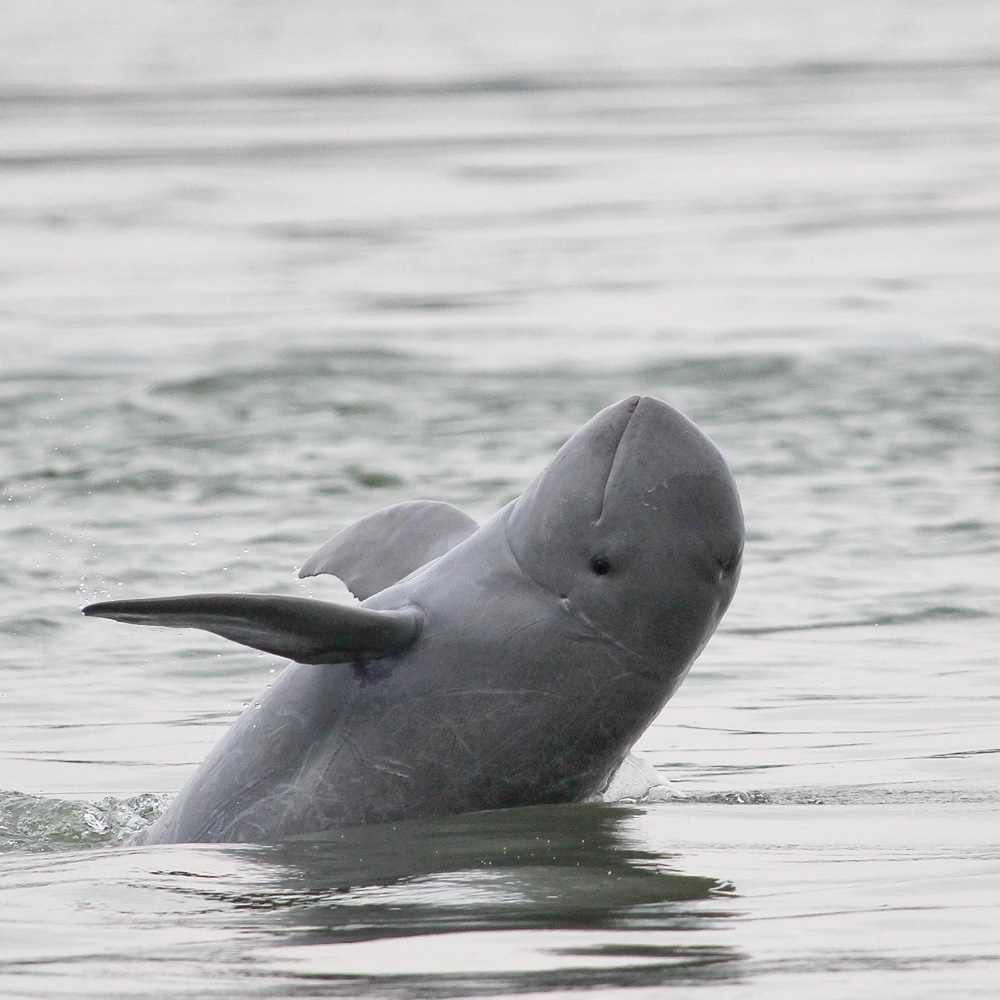
Kratie is a small town located on the banks of the Mekong River and is dominated by a central marketplace surrounded by old, French colonial buildings. There’s no large scale tourism, but plenty of backpackers pour through here during the peak season. It is the place in Cambodia to see the rare Irrawaddy dolphins, which live in the Mekong River in ever-diminishing numbers. It is estimated that there are between 66 and 86 dolphins left in the upper Cambodian Mekong area.
4. Koh Ker
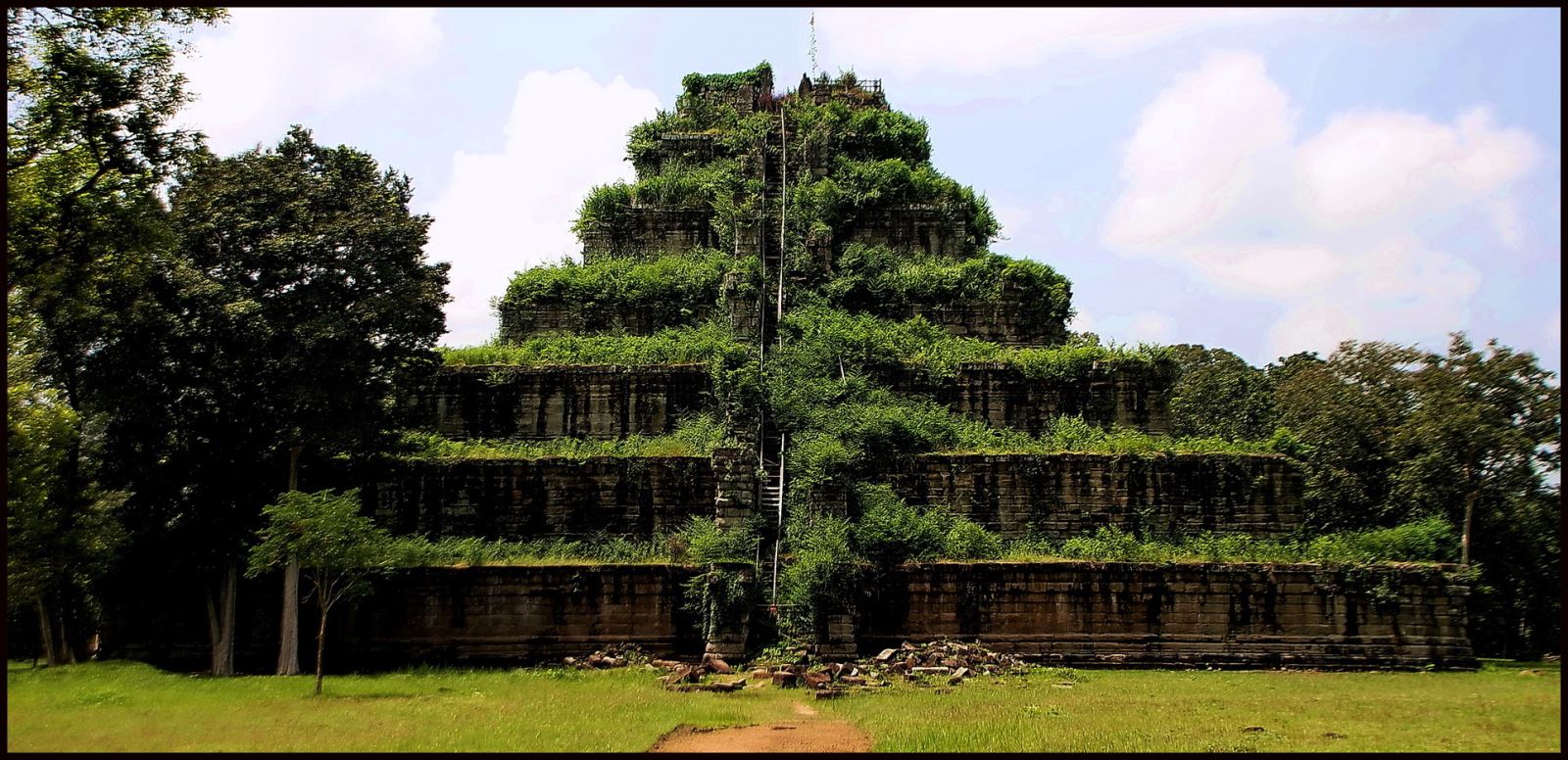
Koh Ker was the capital of the Khmer empire for a very brief period from the year 928 to 944 AD. In this short time some very spectacular buildings and immense sculptures were constructed. The site is dominated by Prasat Thom, a 30 meter (98 ft) tall temple pyramid rising high above the surrounding jungle. A giant Garuda (mythical half-man, half-bird creature), carved into the stone blocks, still guard the very top, although its partially covered now. Left to the jungle for nearly a millennium, Koh Ker was one of Cambodia’s most remote and inaccessible temple destinations. This has now changed thanks to recent de-mining and the opening of a new toll road.
3. Banteay Srei
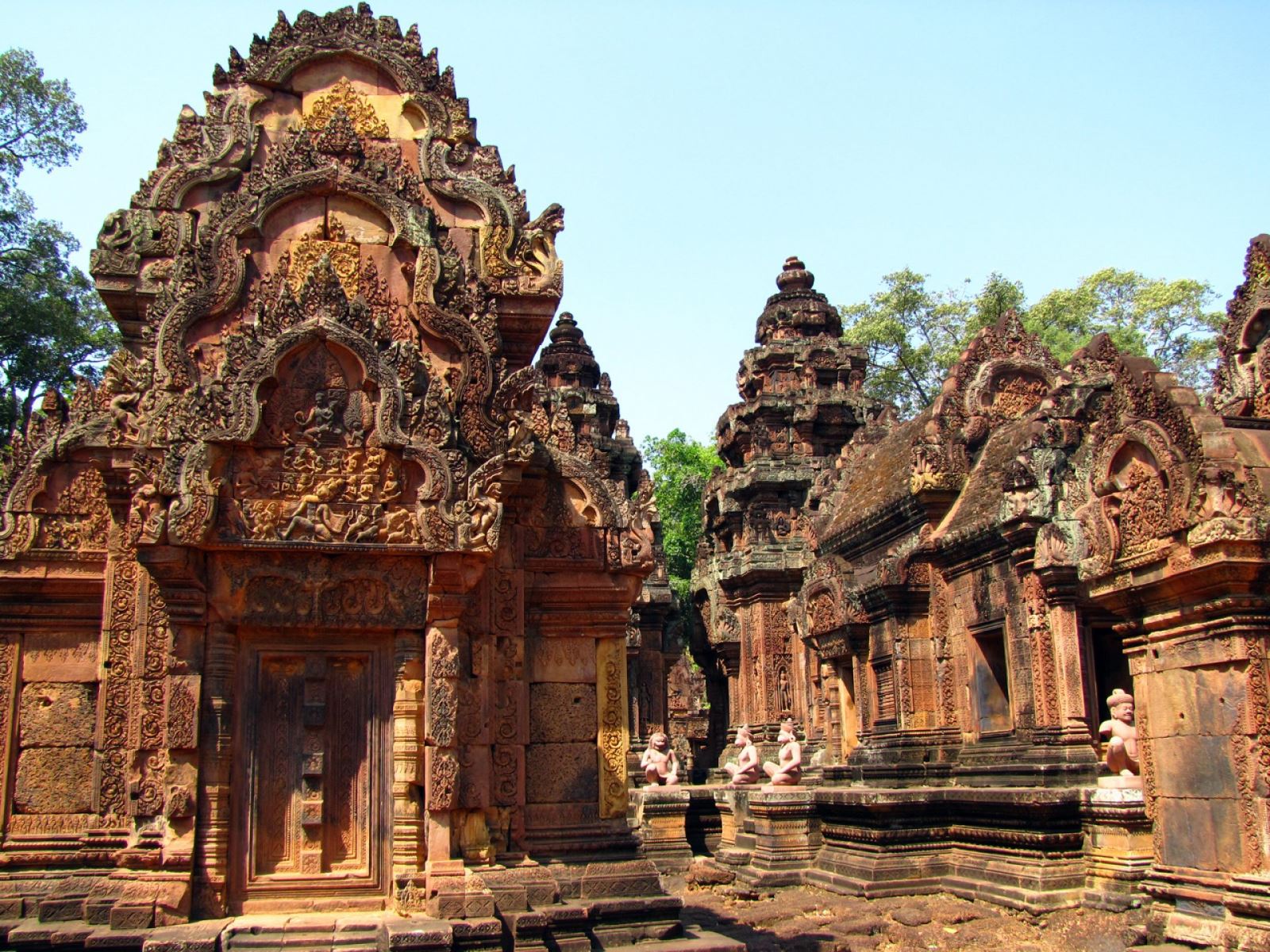
Although officially part of the Angkor complex, Banteay Srei lies 25 km (15 miles) north-east of the main group of temples, and therefore often considered a separate Cambodia attraction. The temple was completed in 967 AD and is built largely of red sandstone, a medium that lends itself to the elaborate decorative wall carvings which are still clearly visible today. Banteay Srei is the only major temple at Angkor not built for a king, instead it was constructed by one of king Rajendravarman’s counselors, Yajnyavahara.
2. Bayon Temple
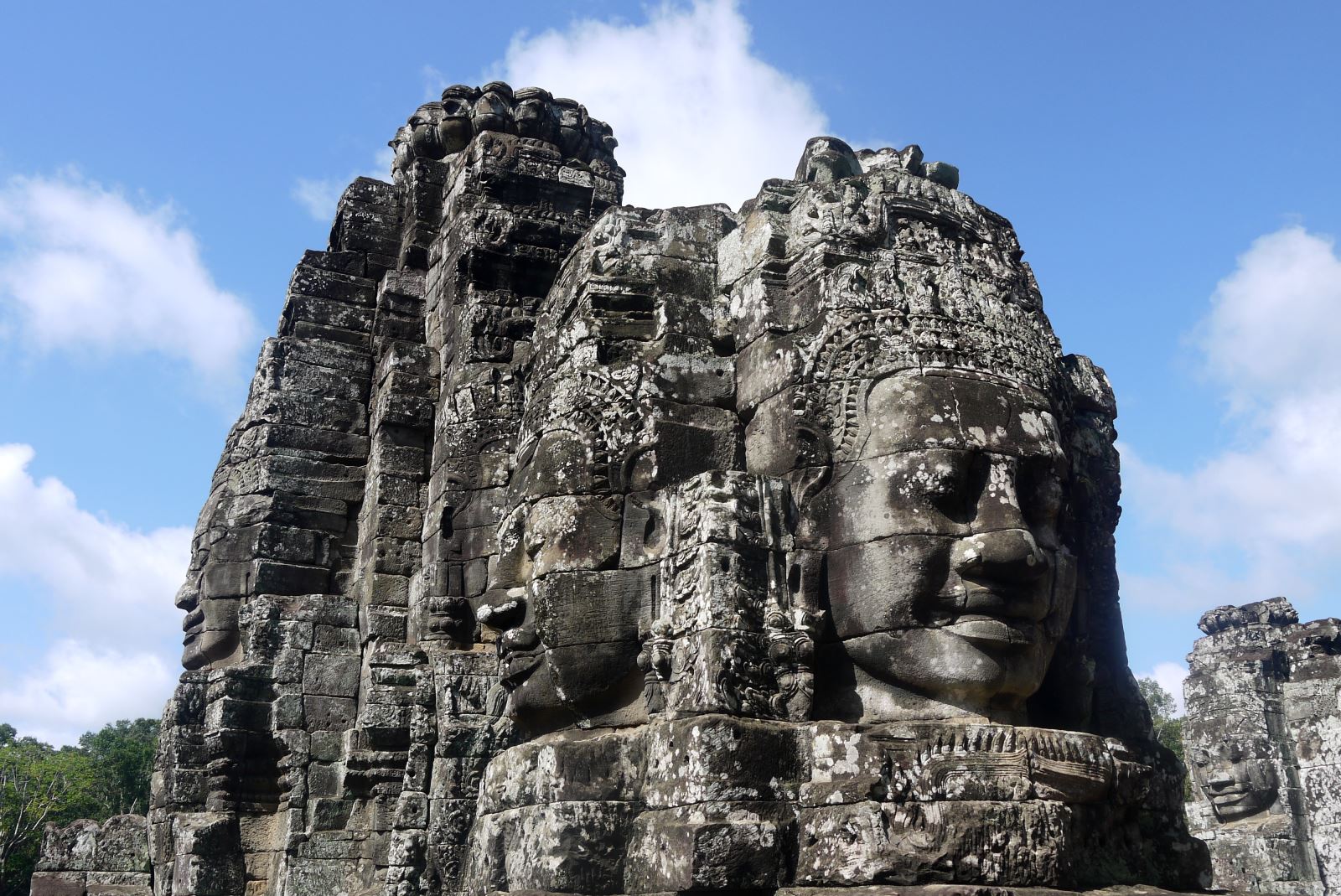
Part of the world famous destination of Angkor, the Bayon temple features a sea of over 200 massive stone faces looking in all direction. The curious smiling faces, thought by many to be a portrait of king Jayavarman VII himself or a combination of him and Buddha, are an instantly recognizable image of Angkor. Built in the 12th century by King Jayavarman VII as part of a massive expansion of his capital Angkor Thom, the Bayon is built at the exact center of the royal city.
1. Angkor Wat
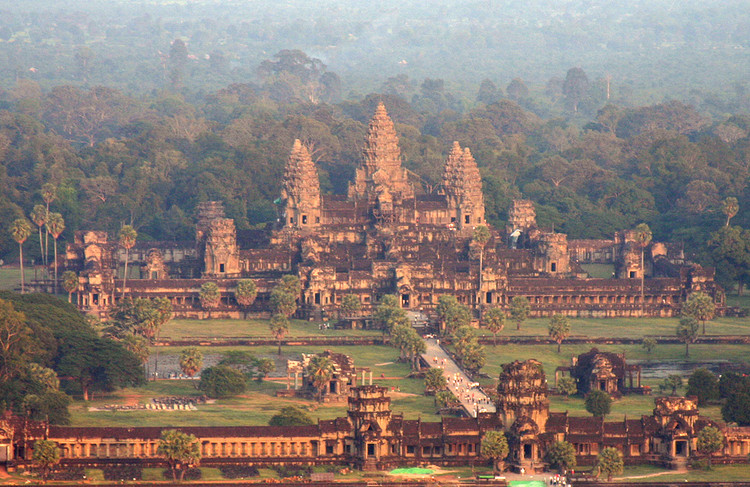
Angkor Wat (meaning “City Temple”) is the most magnificent and largest of all Angkor temples and the top tourist attraction in Cambodia. Built around the first half of 12th century by King Suryavarman II, the temple’s balance, composition and beauty make it one of the finest monuments in the world. A huge rectangular reservoir surrounds Angkor Wat which rises up through a series of three rectangular terraces to the central shrine and tower at a height of 213 meters (669 feet). This arrangement reflects the traditional Khmer idea of the temple mountain, in which the temple represent Mount Meru, the home of the gods in Hinduism.
Source: touropia
Image: Internet











